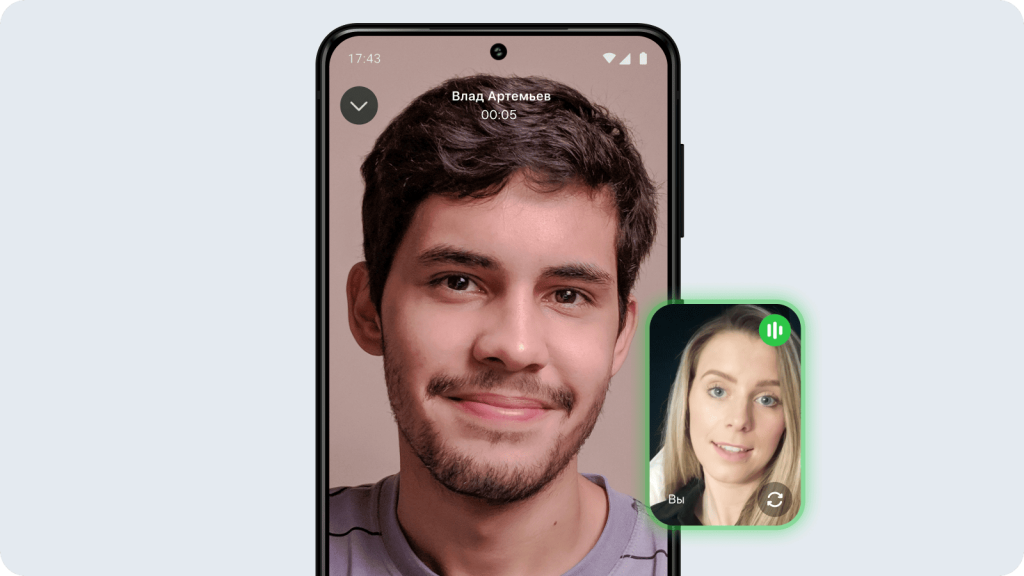History of development
MAX appeared at a time when the need for domestic digital services capable of replacing foreign products intensified in Russia. Since 2022, the idea of a national messenger has been actively discussed, which could not only be used for communication but also be integrated into government services.
The beta version of MAX was released on March 26, 2025. Three months later, on June 24, a federal law was adopted "On the creation of a multifunctional information exchange service". In accordance with it, from September 1, 2025, MAX became mandatory for pre-installation on all new smartphones and tablets sold in Russia.
Unlike VK Messenger, MAX was initially conceived as a service of "mass use". The idea was to combine familiar functions of chats and calls with digital identification capabilities for citizens.
The application works on iOS and Android, has a web version and desktop clients for Windows, macOS, and Linux.
Registration in MAX is only possible with a Russian or Belarusian phone number, which immediately defines its geography and audience.
Legislative context
The federal law defined the messenger as a "multifunctional information exchange service", which distinguishes it from commercial counterparts like Telegram or WhatsApp (owned by Meta - an organization recognized as extremist in the Russian Federation). Essentially, it was given the status of a mandatory communication tool.
Similar practices exist in other countries. For example, WeChat in China, which is used both as a messenger and as a universal platform for government and commercial services. In Russia, MAX may become the same "entry point" into the digital ecosystem.
Main features of the MAX messenger
Like any messenger, MAX offers a familiar set of tools: chats, calls, media file sharing.
Chats
Messaging is based on instant message delivery. Even with a weak connection, the system should automatically select the optimal data transmission channel. The user can pin important messages, create polls, and share location.
Voice and video calls
Calls are supported in one-on-one and group formats. There are data stream compression algorithms that help conduct video conferences at low internet speeds. There are functions for switching cameras and screen sharing.

Groups and channels
MAX supports large group chats of up to a thousand participants. For news distribution or open discussions, channels can be created, which can be public or private.
Media and files
It is possible to send photos, videos, and documents up to 4 GB in size. By default, media are compressed, but this setting can be disabled. There is also a built-in media player for viewing files directly in the chat.
Emoji, stickers, interactive elements
The app provides a library of stickers, GIF animations, and reactions. Users can create their own sticker packs.
Cloud storage
Unlike local storage, all chats and media are synchronized via the cloud. This makes it possible to continue conversations on any device without backup.
Security
Developers claim end-to-end encryption for private chats and two-factor authentication. The user can delete messages on a timer, block unwanted contacts, and customize profile privacy.
Integrations and bots
One of the key directions of MAX is integration with government systems. The messenger is planned to be used for identity verification, working with digital signatures, and receiving government services. It can also be integrated with payment services for in-chat payments.
Personalization
The interface can be customized to personal preferences: choose themes, colors, fonts, animations.
Architecture and technical foundation
The platform is built on a distributed server infrastructure. This means its data centers are located in different regions. Data transmission uses the WebSocket protocol. Data encryption is declared both in transit (TLS) and at rest (AES-256). A filtering system and automatic load scaling are used to protect against DDoS attacks.
Target audience
MAX is designed for the widest audience. It is used by teenagers and students, elderly users, various communities, and interest groups. The messenger can also be used in schools and universities.
Development prospects
Developers announce plans for deep integration of MAX into the VK ecosystem and financial services. The application already includes the GigaChat neural network, which can help with writing texts, answering questions, and executing commands.
Corporate communications
MAX is primarily a service for personal use. In business, especially in the financial sector, where security and control issues are critical, corporate messengers are usually used. They allow keeping data inside the company on its own servers, configuring employee roles, integrating with IT systems, and scaling according to the organization's needs. For example, the role model available in the eXpress messenger allows flexible management of user access rights at the level of chats, channels, downloading or viewing documents, and even mini-applications SmartApps. More details about the corporate capabilities and security methods of the platform can be found on the official eXpress website.





